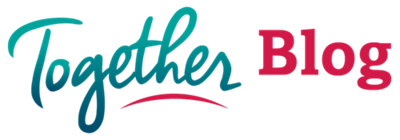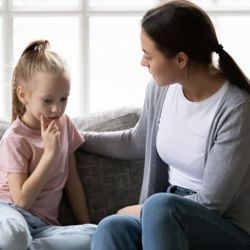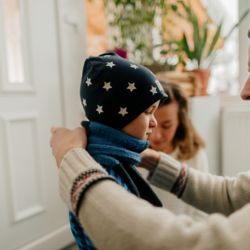Age-Appropriate Gift Ideas for Toys that Promote Development
This article was originally conceived by Jennifer Robinette.
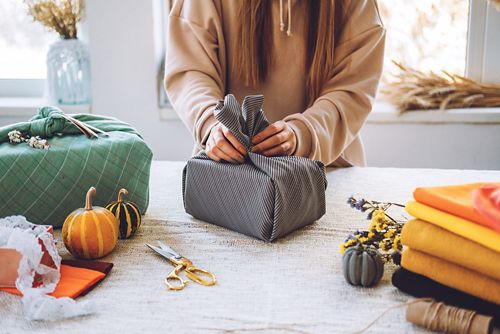
We know it can be hard to find a fun yet meaningful gift for the children in your life. So, we want to help.
The holiday shopping season is here.
We know it can be hard to find a fun yet meaningful gift for the children in your life. So, we want to help. Physical therapists, speech-language pathologists, and occupational therapists from St. Jude Children’s Research Hospital have recommended some items for gift-giving fun that also promote healthy development. Be sure that the option you choose is age appropriate.
Gift suggestions below are tailored to encourage:
- Gross motor skills: whole-body, large-muscle movements like sitting, standing, crawling, walking, and reaching for objects
- Fine motor development: skills such as grasping or picking up objects, strengthening the small hand and finger muscles
- Visual motor development: using visual information to complete movements based on what your child sees
- Sensory integration development: having to do with touch, sound, or movement; the ability to recognize and respond to changes in the environment
- Speech and language skills: involving the ability to communicate clearly and effectively, using skills such listening, understanding, and talking
Up to 12 Months Old
Experts recommend looking for gifts that encourage gross motor skills. Some options that can help babies develop these skills include:
- Wrist and ankle rattles
- Activity mat
- Climbing gym
- Push-pull toys
- Activity table
- Ball popper
- Cars or trucks that can be pushed
Other gifts for this age group might encourage visual motor and sensory integration development. Gifts that can promote these skills include:
- Teether or rattle with elements that engage your child’s senses
- Light-up toys
- Toys with buttons
- Mirror toys
- Musical instruments
- Plush blocks
- Spinners
- Ring stack
- Bead maze
- Bubbles
- Sensory toys and tubes
Speech and language development are vital during the first year of life. You can find toys, books, and games that encourage these skills. Talk with your child about what you see or hear while playing.
- Large picture books with touch and texture
- Books with audio features and sounds
- Pop-up toys and activities
- Stuffed animals (Make sure that they are washing machine safe and don’t include choking hazards like small buttons.)
- Bath toys
- Recordings of lullabies or other songs
1-2 Years Old
Gross motor skills continue to develop, and children this age benefit from practicing these large-muscle skills. There are plenty of great gift options to help children develop these skills:
- Ride and push toys
- Tricycle with steering handle (2+ years old)
- Slide with ladder
- Beach ball
- Large cardboard blocks
- Train
- Tunnel
- Car ramps
- Activity center
Gifts to encourage fine motor, visual motor, and sensory integration development are good, too. Some options may be:
- Stacking cups
- Small blocks
- Crayons
- Pop beads (large sized, as smaller beads may cause choking)
- Board books
- Puzzle with knobs
- Busy box
- Shape sorter
Speech and language development continues at this age. Continue talking and asking questions during play. You can find plenty of gifts to encourage conversation and creative play:
- Large picture books (thick pages with bright pictures and textures work very well)
- Board books
- Piggy bank
- Ball popper
- Tea set
- Kitchen play set
- Play doctor’s kit
- Farm with animals
- Dollhouse
- Cars/trucks
3-4 Years Old
You can help children this age to develop their gross motor skills with gifts like:
- Soccer ball and goal
- Basketball hoop
- Inflatable ball dart game
- Playground ball
- Bicycle with training wheels
- Bean bag toss
- Yoga activity blocks
- Yoga mat
Gifts for fine motor, visual motor, and sensory integration development are good options, such as:
- Color matching games
- Arts and crafts, paints
- Clay, playdough
- Wooden blocks
- Bristle blocks
- Magna-Tiles®
- Play cash register
- Dressing board
- Game involving stringing and threading
- Pattern matching games
- Sensory sand play set
- Water table
You can encourage continued speech and language development. Gift ideas to help children continue to develop these skills include:
- Doll house
- Plastic animals
- Figurines
- Kitchen play set
- Racetrack
- Memory/matching games
- Puzzles (up to 20 piece)
5-6 Years Old
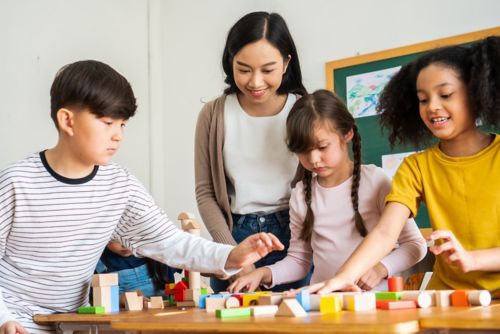
Fine motor, visual motor, and sensory integration skills are still developing at this age. Look for gifts like these to support that growth.
Here are gifts to assist children this age to continue developing their gross motor skills:
- Bicycle with removable training wheels
- Yoga mat
- Hockey set
- Wagon/wheelbarrow
- Balls, soft bats
- Gardening tools
- Dance/tumbling class pass
- Sports lessons
Fine motor, visual motor, and sensory integration development can be supported with gifts like these:
- Scissor skills workbooks
- Musical instruments
- Mosaic tiles
- Geometric shape puzzle
- Kinetic sand
- Sticker books
- Drawing pad/digital drawing pad
- Small bead jewelry making set
- Lego® set
- Dress-up clothes
Don’t forget that speech and language skills are still evolving. Here’s how you can support them:
- Memory games
- Matching games
- Certain card games
- Stuffed animals and dolls
- Foam letters or magnetic letters
7- 9 Years Old
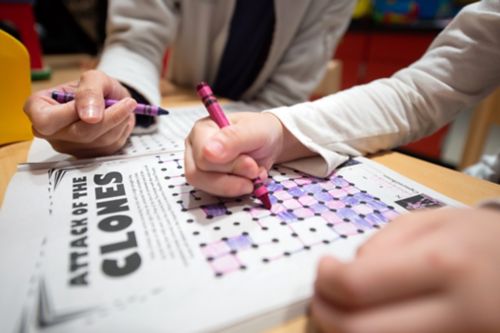
Activity books are a great gift option to develop fine motor skills for 7–9-year-olds.
Here’s how you can support continuing growth of gross motor skills through thoughtful gifts:
- Velcro® toss and catch
- Jump rope
- Bicycle without training wheels
- Yoga mat
Fine motor, visual motor, and sensory integration skills are still developing at this age. Look for gifts like these to support that growth:
- Crafting and bead sets
- Musical instruments
- Activity books (mazes, word searches, and puzzles)
- Cooking and baking set
- Fidget toys
- Classic board games
- Keyboard and typing toys
Speech and language development will continue at this age, too. Look for these games to support these skills:
- Board games
- Story games
- Family games
- Telescope
- Collage kit/scrapbooking kit
- Journal/diary
We hope these gift ideas will get you thinking about the best ways to support the development of the children in your life — and give them enjoyable, memorable gifts in the process.

